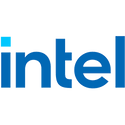During the CES 2024 international show, Wacom, one of the leaders in the digital design space, unveiled the new Wacom Cintiq Pro and Wacom One tablets. The company also showcased its digital rights management software, Yuify, and introduced Wacom Bridge, a tool designed to enhance remote collaborative workflows for studios. The new Wacom Cintiq Pro line, including the Pro 27, 22, and 17, was developed in collaboration with professionals in virtual production, VFX, CG, and animation. The latest Wacom Cintiq Pro 27, with its precision and best-in-class color fidelity, is poised to take virtual production workflows to the next level. Color accuracy is crucial in virtual production workflows, and the Wacom Cintiq Pro 27 delivers 100% Rec. 709 and 98% DCI-P3 color accuracy. Its 4K display, with 10-bit color, offers high color performance and calibration options, reducing the traditional setup footprint without compromising performance.
The new Wacom Pro Pen 3, redesigned for ergonomic comfort and customization, complements the Cintiq Pro 27's eight Express Keys and multi-touch screen, offering a harmonious workflow. Wacom Bridge, developed in partnership with AWS NICE DCV and Splashtop, is a technology solution that enhances the use of Wacom products on supported remote desktop connections, catering to the needs of remote and hybrid work environments. The Wacom One line, first launched in 2019, has been redesigned and upgraded, offering more options and customization opportunities. The line includes the Wacom One 13 and 12 displays and the Wacom One Medium and Small pen tablets. Finally, Wacom's commitment to protecting artists' work is embodied in "Yuify", a service that allows artists to protect their artwork, manage usage rights, and establish legally binding license permissions. This digital rights management platform enables creators to conveniently manage their authorship records and sign licenses and contracts.










































































